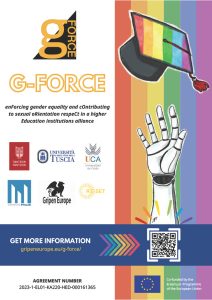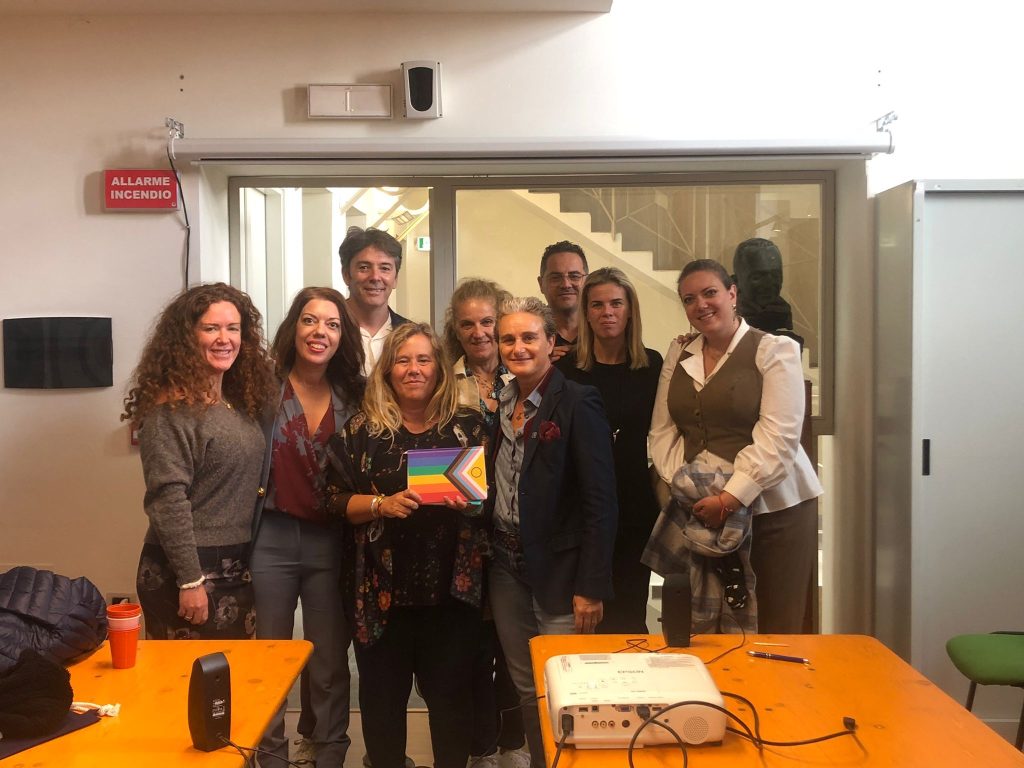Transnational G-Force project meeting enForcing gender equality and cOntributing to sexual oRientation respeCt in a higher Education institutions alliance 16 October 2024
The University of Cadiz has participated in a transnational meeting of the G-Force project (enForcing gender equality and cOntributing to sexual oRientation respeCt in a higher Education institutions alliance ) at the University della Tuscia, Viterbo, Italy, on 7 and 8 October 2024.
The G-Force project is a project of the Erasmus+ programme for cooperation partnerships in the field of higher education (Key Action 203). The universities participating in this project are besides the University of Cadiz, the Università della Tuscia, Italy, Panteion University Greece and the companies Xenio Polis, Greece, SC Gripen Europe, Romania, Research and Education of social and Transformation N-Reset, (Cyprus). G-FORCE, which started at the end of 2023 and will end in October 2025, aims to train academic staff and students in higher education to combat gender bias by raising awareness on equality, building capacity on gender issues and promoting equality goals among all. In addition, to provide inclusive tools to serve as tailored learning resources and a basis for upcoming postgraduate programmes on gender diversity.
The meeting in the Italian city of Viterbo was attended by the lecturer and main researcher of the project Begoña Sánchez Torrejón, from the Faculty of Education Sciences and the lecturer María del Mar Martín Aragón, from the Faculty of Law, both of whom belong to the Andalusian Observatory for Gender Diversity, Citizenship, Health and Citizenship (DIVERSACI) and Javier izquierdo Antón, technician of the Alumni Management and International Relations area. The central themes of the project were discussed, related to the promotion of gender parity and the struggle for the inclusion of LGBTIQ+ people in university higher education.

As specific objectives the project aims to foster gender parity and fight for the acceptance of sexual orientation by promoting equality and providing state-of-the-art digital tools and resources. The project includes various work packages related to the advancement of LGBTIQ+ rights in the university environment. The implementation includes strategic work packages, transnational meetings and multiplier events in all participating countries to move towards a Europe free of LGBTIQphobias.
The working meeting reviewed the state of implementation of the different work packages of the project, which have been carried out to date, which have covered the first two work packages, focused on the development of the promotion of the inclusion of gender diversity, promoting equality and providing tools and digital resources of the latest generation of content based on evidence. On the other hand, in the last meeting, the future lines of work have been shared in order to continue advancing in the different work packages.


